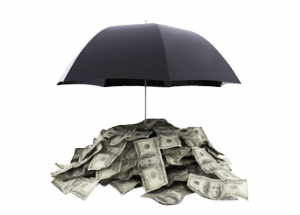 There’s nothing I like more than writing my annual checks for all my insurance protection. <cough>
There’s nothing I like more than writing my annual checks for all my insurance protection. <cough>
Not including my long-term disability policy, my $2.5 million 30 year term policy, standard homeowner’s and auto policies, and personal umbrella policy; I pay roughly $5,124 per year for my total business insurance coverage.
But we all know that insurance is a necessary evil.
When you damage someone else’s property, or cause injury to someone else, you are usually held personally liable for the costs.
This means that you have to pay restitution.
In some cases, these costs can exceed your ability to pay. That is not a good situation!
With the help of personal liability insurance, though, it is usually possible to meet these types of obligations.
Personal liability insurance is a completely different ballgame from life insurance.
What is Personal Liability Coverage?
Chances are that you already have some liability coverage. Most homeowners policies and auto policies include a certain amount of personal liability coverage. If someone is injured at your home, or if you ruin someone’s property with your car, the insurance company pays the claims, up to the amount that you are covered for.
Personal liability coverage helps you protect your assets, since the insurance company pays out the claim, and you don’t have to dip into your savings, or into your other assets. However, the personal liability coverage that comes with your more common insurance coverage isn’t always enough.
Consider Umbrella Insurance
 One way to augment your personal liability coverage is to purchase an umbrella policy. Umbrella insurance protects you in larger amounts than what is usually offered with your other policies, but the premium increase isn’t as bad.
One way to augment your personal liability coverage is to purchase an umbrella policy. Umbrella insurance protects you in larger amounts than what is usually offered with your other policies, but the premium increase isn’t as bad.
You can usually buy a popular umbrella coverage amount for about $150 a year, and an increase of $50 for each additional $1 million. Many consumers find that boosting the deductible on auto or home insurance can offset the cost of umbrella insurance.
If you have factors that increase your chances of damaging property, or injuring others, it can be worth it to get umbrella insurance — especially if you have a high net worth. Someone who knows you have more assets might be more willing to sue you for $2 million after a slip and fall at your home. Umbrella coverage kicks in after your regular insurance is tapped out.
So, if your homeowners policy has $750,000 in liability coverage, and you have $3 million in umbrella insurance, if you are sued for $2 million, your homeowners policy will tapped first. Once the $750,000 has been paid out, the remaining $1.25 million will be paid from your umbrella policy.
We initially started with a $1m umbrella policy but recently increased that to $2m of total coverage. I also have an umbrella policy for my business, too.
Errors and Omissions
When you are self-employed, you have to be aware of some of the liability issues that can come with your job. If a client holds you responsible for a service you provided, or if the promised results were not realized, or if you are considered liable for a service you didn’t provide, this can become an issue. Financial planners, lawyers, cosmetologists, and others who are in positions to provide advice and some services to clients can benefit from this type of liability insurance.
This is my whopper of a premium, but with my profession; it’s a necessity. My total premium is $3,654 per year for E&O coverage. <gulp>.
Some additional benefits that my E&O coverage policy covers on top of the $1m of coverage are:
- Business travel Accidental Death Benefit: $25,000
- Emergency Real Estate Consulting Fee: $25,000
- Identity Theft Expense: $25,000
- Key Individual Replacement Expense: $25,000
- Kidnap Expense: $25,000
- Theft of Work Materials: $2,500
Should You Buy Personal Liability Insurance?
Make sure you consider your situation, and your position. If it appears that you could be sued for what you have done, it’s important to make sure that you have the proper liability insurance. That way, you will protect your assets, and avoid financial ruin if you are held liable for someone else’s injury, loss, or property damage.

Leave a Reply